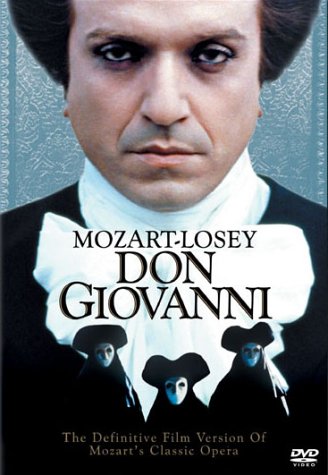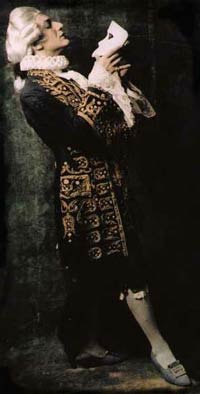|
 In a signal encounter with the famous French philosopher and writer Voltaire, Casanova explains that "I amuse myself by studying people as I travel . . . it is fun to study the world while passing through it." Indeed, Giacomo Casanova de Seingalt, traveller, adventurer, musician, lover, escaped convict, and avid reader, brings to his monumental The Story of My Life (Histoire de ma vie) an explicit relish-and aptitude-for intimate observations on human nature, customs, gastronomy, science, literature, economics, and religion.
In a signal encounter with the famous French philosopher and writer Voltaire, Casanova explains that "I amuse myself by studying people as I travel . . . it is fun to study the world while passing through it." Indeed, Giacomo Casanova de Seingalt, traveller, adventurer, musician, lover, escaped convict, and avid reader, brings to his monumental The Story of My Life (Histoire de ma vie) an explicit relish-and aptitude-for intimate observations on human nature, customs, gastronomy, science, literature, economics, and religion.
These selections serve not only as a catalogue of erotic exploits, for which Casanova's memoir has gained its notoriety, but also as a gazetteer of important Enlightenment-era locales. Casanova, under various circumstances, travels from decadent Venice (where he was born in 1725) to trendy Paris, artistically rich and morally puritanical Vienna, and wealthy, plague-ridden Constantinople. Indeed, Casanova's identity as a Venetian provides an interesting counterpoint to his encounters and digressions with various personalities. His travels underscore the richness and diversity of Italian and Continental identity in the eighteenth century.

Throughout his adventures, Casanova is never less than an observant, personable guide. The deftly written sketches of those he encounters-including Catherine the Great of Russia, Pope Clement XIII, Voltaire, and the French dramatist Crebillon-show his formidable intelligence and curiosity. His descriptions of a host of others-including lower dignitaries, actresses and actors, inn-keepers, spies, and commoners-reveal his wit and his desire to unveil the broad scope of the eighteenth-century Continental world.
Indeed, what inevitably charms the reader in Casanova's wide-ranging memoirs is the author's natural intelligence and his disinclination to suffer fools gladly. Nonetheless, this intelligence does not prevent Casanova from falling into numerous scrapes, resulting more than once in his being imprisoned or exiled. In such instances, Casanova does not spare himself, acerbically commenting on his own poor judgment, and frequently linking his troubles to his susceptibility to "the allurements of all forms of sensual delight." The cultivation of such pleasures, Casanova tells us, "was my principle concern throughout my life." Still, he notes that "I do not know whether it was by my intellect that I have come so far in life, I do know that it is to it alone that I owe all the happiness I enjoy when I am face to face with myself."

Much of the pleasure Casanova experiences in the later, more subdued portion of his life is derived from remembering his colorful exploits, and threading them together in The Story of My Life. "In recalling the pleasures I enjoyed, I relived them," he writes in his 1797 Preface. Certainly, Casanova shows a striking ability to reconstruct events and impressions from his "follies of youth." While the authenticity of some events included in his memoirs is questionable, one suspects that Casanova's accounts are largely true, and that any deviations that occur are for the sake of literary considerations. Casanova may well have shunned writing a memoir that might "weary the mind . . . without interesting the heart."
There is something for every reader in The Story of My Life. As Edmund Wilson notes in an essay on Casanova, "Has any novelist or poet ever rendered better than Casanova the passing glory of the personal life-the gaiety, the spontaneity, the generosity of youth; the ups and downs of middle age when our character begins to get us and we are forced to come to terms with it; the dreadful blanks of later years, when what is gone is gone." Wilson notes, too, the "brilliant variety of characters," and calls Casanova's memoirs "one of the most remarkable presentations in literature of one man's individual life."
The Story of My Life succeeds, then, as an exploration of eighteenth-century culture, and as a candid account of personal triumph and folly. Formally, it offers a compelling example of the personal memoir where the intimate, public, and historical are woven together into a vibrant tapestry. The rich ensemble of characters, major and minor, who populate Casanova's memoirs continue, even in the twenty-first century, to fascinate with their paradoxicality. Casanova consorts with nuns who have other lovers, women who masquerade as men, and great intellects who show narrow-minded provincialism. Casanova's own awareness of the diversity he shows us, combined with his skill as a storyteller, make The Story of My Life an unforgettable encounter with the possibilities the human condition presents.

It seems that Giovanni Giacomo Casanova (1725-1798) wasn't really a Casanova after all ... or, rather, not according to the contemporary definition of the word. Belgian psychoanalyst Lydia Flem presents a bold new interpretation of Casanova's life as seen through his 12-volume History of My Life (incredibly, it's incomplete), excerpts from which are sprinkled liberally throughout the text of her book Casanova. Yes, it's true, the man dedicated his life to the pursuit of happiness, but he also once declared that "to be happy, it seems to me one needs only a library." And far from being a serial seducer who conquered women only to abandon them, he treated women as intellectual equals, was almost never the one to initiate a breakup, and remained friends with many of his former lovers. Flem's insights into Casanova's life--and his memories of that life--are delivered in lively prose that moves quickly without skimping on intelligence.


|













